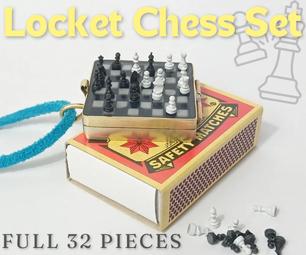Introduction: Wonder Woman Cosplay: Body Armour and Gladiator Skirt
So you have decided to become Wonder Woman... a good choice! Maybe you've been an avid fan of the comic books or seen the movies she has been in and thought "How awesome would it be to BE her!" Well, you have come to the right place. In this series of Instructables (Yes! There will be more) I will take you step by step through how I built my costume start to finish. Whether you are a first time cosplayer looking for some instruction or a 10th time cosplayer just searching for inspiration, I hope that this Instructable will come in handy. Now go out there and become the God-killer, the Spirit of Truth, the Goddess of Love and War. Why? Because you can.
Step 1: Materials
-Saran wrap
-Duct tape
-Sharpie
-Scissors
-Half inch EVA foam (I used interlocking floor mats from the hardware store)
-Straight pins
-Contact Cement, something along the lines of Barge All Purpose Cement or Dap Weldwood. (Hot glue is also an option but it doesn’t create as nice seams, and may not hold quite as well.)
-X-acto/craft knife with plenty of extra blades
-Dremel tool (or sandpaper) in case your cuts don’t turn out beautifully
-Heat gun
-Wood burner
-Thin craft foam (I used a roll of “Grip Premium liner” I found)
-Plasti Dip spray (readily available at auto shops)
-Painters tape
-Red, gold, and blue metallic spray paint
-Wide extra sticky Velcro strip
-Ripstop fabric (I cut up one of those drawstring backpacks you get for free at events)
-Sewing machine/Hand-sewing skills
-Bronze paint marker
-Thin strong ribbon-like fabric (I’m not sure what to call this)
-Attachable snaps and a snap setter or some other form of hooking-together things
Step 2: Breastplate/Armour: Patterning
This is one of the most important steps. Without a pattern the costume may not actually be able to fit when completed. You don’t want to have put in all that work and have it all be for naught in the end.
I. Start by having a friend wrap you in Saran Wrap. Make sure that you wear a tight fitting shirt or a sports bra for this step. The wrap should extend from below your hips where the bottom of the belt will rest, to as far up below your armpits as possible. I made mine a little bit short in the beginning and had to extend it later which was unfortunate.
II. Now go ahead and cover up all the Saran Wrap with duct tape. When this is done, have your friend draw lines down the front and back center as well as either side and right below your breasts. These will be where the seams will lie later.
III. Have your friend can very carefully remove the pattern by cutting along one of the seam lines. I would suggest the one down the back center.
IV. This is the step where, if you didn’t know before, you’ll learn quickly that reference images are your best friend. I simply can’t stress enough how much you will need to lean on them. On your pattern, draw out the lines where you see them on the actual Wonder Woman outfit. Make sure you include the lines from the gold belt and eagle, not just the center. When you are satisfied with how it looks, cut off any excess duct tape from the outside of the pattern.
***At this point I started working on the skirt at the same time, so if you would like to skip to that and come back you can.
Alright! So you have mostly finished the skirt now, or maybe you haven’t even started. Either way is fine. We are going to continue on with the main breastplate/armour.
V. Before you begin to cut apart the pattern into panels, draw some little registration marks horizontally across the seams. These should be frequent so you will have an easier time lining up the pieces when you begin to glue them.
Step 3: Breastplate/Armour: the Real Deal
I. It is now that we have finally come to the pattern-cutting time. Cut along the seams that you marked off previously. This should split the pattern into six separate pieces. Two back panels and four front ones. A slit will need to be cut into the breast cups so they will lay flat when you trace them.
II. Lay out your patterns on the foam tiles. Use straight pins to tack down the edges and make it as flat as possible before tracing them. Trace each piece carefully with a sharpie, then remove pins and patterns. You are not quite done with the patterns yet so don’t discard them.
III. This is the scary part! Using an X-acto knife, carefully cut out each piece. Some suggestions here: Make sure your blade is new and very sharp. I would even go as far as to use a new blade every couple of pieces. If you are cutting along a straight line, feel free to use a ruler to guide the knife. Go slowly and steadily as you drag the knife. You aren’t in a rush and this will help to make nicer lines. The cut doesn’t have to go all the way through the foam the first time; a second pass through is not a bad idea. Make sure you keep your blade perpendicular to the foam the entire time, as this will help when you are connecting the seams later.
IV. Transfer the registration marks you made on the duct tape pattern onto the foam. Make sure these are easily visible.
V. *This step is only necessary if the edges of your cuts are a little bit jagged* Take a dremel tool with a sanding drum and gently run it over any of the rough edges. Make sure you keep the tool parallel to the edge and don’t remove too much material, just enough to smooth it out. If you do not have a Dremel, sand paper will work just fine.
VI. Using your heat gun, seal the foam. This is done by slowly moving the heat gun across the entire surface as well as the edges. You will be able to see when this is done as the slight pattern the foam may have will disappear or will become shiny.
VII. Before you start going crazy and gluing the main body together, do yourself a favour and shape the foam slightly. Do this by heating it up in the same way you just did to seal it, and bending it to about the shape you want it in eventually. In order for it to stay in place you will need to hold it for a short amount of time in a little bit more then the position needed. This step, while not necessary, will make it so much easier to glue without putting a strain on the glue.
VIII. Time for glue!!!!!! Brush your contact cement along the edges of each piece that will be connected to each other in some place. (Do not glue the back center edges. We will need this to remain open so you can get in and out of the costume.) This type of glue sticks best to itself, so make sure you put glue on both sides of the seams. Don’t think you can get away with just one side!
IV. Let the glue dry for at least 15-20 minutes (or a max of two hours) before sticking together the seams. While connecting seams, line up those registration marks! This is very important. If you don’t line them up, you won’t end up with the result you want. Start with gluing together the seam on each of the breast cups; this will give them a rounded curve. Next, glue each cup to their respective front panel. Registration marks must line up! I will continue to repeat this so it sinks in. We are almost done at this point... there are only three more seams to go. Line up the sides and stick those together following your marks. This may take a little bit of effort and bending as these are the seams that curve around your body. Lastly, glue together the front center seam. This one should be easy as it should be a straight line up and down. (If you are looking at my images and are confused about the order, I glued the center of each cup together before connecting it to anything else and in hindsight I should have glued each to their respective front panel first).
X. WOW! You did it! Basic body form complete. At this point, I went ahead and strengthened the seams with hot glue from the back. This is completely optional; I just like the little bit of extra strength.
Step 4: Breastplate/Armour: Detailing
I. Alright, this is where your pattern comes in handy again. Using straight pins, tack your pattern down directly onto your form. Make sure the edges of the pattern line up with the edges of the panels as best as possible. Place pins along all the lines, especially in the places where lines meet or have turns. Once you have completed this, you may remove the pins and trace along the pinholes with a Sharpie, very carefully. You may need to use the pattern as a reference for where the lines go.
II. Get out that wood burner and burn right along those lines you just drew with the Sharpie. Make sure you don’t burn any of the lines for the belt or the eagle. Go smooth and steady here. Choose a speed and stick to it. This will ensure that the lines have a consistent depth throughout the entire work.
III. I promise that this is the last step that you will need the duct tape pattern you made earlier. Go ahead and tape the top and bottom of all the patterns together again. Cut out the eagle and the belt, and within this, each of the little individual strips. There are a lot of them, I know. Here is where those reference images will come in handy again. Remember that some of the pieces overlap, so just make sure to include the overlap in the pieces that you cut out.
IV. Seal the top of the thin craft foam using the same method as before, and then trace each pattern piece you just cut out onto it. (Once again, I used a roll of Grip Premium Liner I found.) Cut out each individual piece; you can use scissors since it’s thin enough. Then lay them out.
V. Flip each piece over and put a layer of contact cement on each. Remember that you must also coat any section of the main body that will have a piece stuck to it with the glue also. Wait the 20 minutes and you are ready for action.
VI. Carefully place each thin foam piece onto the main body within the Sharpie lines as best as possible. Press them down to make sure they stick. This is a tedious job but it must be done carefully.
VII. Pretty much done now. Using an X-acto knife, cut slits were there appears to be battle damage. Reference images can really help here. Open up the cuts with a heat gun in the same way you would as if you were sealing the foam. This will cause the foam around the cuts to shrink and the slices will become visible.
VIII. Shake up that can of Plasti Dip and spray it on. This will allow the foam to fully seal so none of your spray paint will soak in. Make sure you cover every nook and cranny that will have paint.
IX. Time for spray paint at last. Use some painter's tape to cover the belt and eagle, and use the red paint to coat the entire center section.Let it dry enough. Then cover the middle with tape, and go crazy with the gold. Looking great, right?
Step 5: Breastplate/Armour: Making It Wearable
I. Measure along either side of the back of your main form (check out the image with the blue drawing on it for an example) and cut your extra sticky Velcro to match. Dremel or sand down the area on the main form where the Velcro will stick so it is flat. Make sure to reseal this part with the heat gun. You can now unpeel and stick the hooked half of the Velcro here.
II. To make the other side stick, the ripstop fabric will come in handy. Trace the other side of the Velcro and then flip it over and draw it again next to it, leaving extra room room for a seam allowances. Hem the edge using a sewing machine or hand stitching it. Unpeel and stick the Velcro to the fabric. Dremel down the other side of the main body and seal it as you did previously.
III. Hot glue the fabric (the half without the the Velcro) to the space you just sanded down. Make sure the Velcro pieces still face each other. (I tried contact cement first but it didn’t stick so I moved to hot glue).
IV. Repeat steps for the small top section.
Congratulations!!!!! You have now completed the main body, go ahead and try it on.
Step 6: Gladiator Skirt: Patterning
No Wonder Woman look would be complete without the signature blue skirt. So of course you need one as well!
As with any piece of a cosplay, we are going to start out with a pattern. Looking at the reference images, you can tell that there are four main sections: the front, two sides, and the back. Each section is made out of two pieces—a wider and slightly shorter back and a slimmer, longer middle section.
If you notice, the front and side sections are exactly the same. There is also a thinner strip that runs along either side made out of two separate pieces.
I. Measure between the outside bumps of the “W” on the belt. This will be the width of the skinnier center piece. The larger back piece is the width between the two places where the “W” on the belt fans out. (Take a look at the blue and green marks on my image)
II. Measure the length of the center piece from your waist down to your desired length. (Be sure to add a little bit of extra at the top of each piece for connecting it to a waistband.) Cut the end of the pattern into a wide “V” with an angle of slightly more then 90 degrees. The larger back piece should have the same angle as the center one, but should be about 1 cm shorter. Cut out each piece and replicate them twice over, giving you three total copies. Those will become the front and sides. For the back you are going to repeat the same patten; just make it a good deal longer. Mine is almost twice the length.
III. Trace out each pattern piece onto the thin craft foam and cut them out.
It is now time to make the foam look like leather! This is a very time consuming step but it yields great results. Go ahead and check out my other Instructable here on how to do this part.
Step 7: Gladiator Skirt: Piecing It Together
I. Using contact cement, make a thin layer of glue along the top center of the larger back piece and the entire top back of the smaller front layer. Do this for each section. Wait the 20 minutes or so for the glue to be tacky, and then stick the two layers together.
II. Measure around your waist and cut out a piece of a thin sturdy ribbon-like material to slightly longer than this measurement. Using a snap setter and snaps (or connecting method of your choosing), go ahead and make the ribbon into a closeable loop that nicely sits on your waist. This will be the way the skirt stays on you eventually, and it will be able to be taken off with ease.
III. Lay out each one of of the four sections on top of the ribbon and make sure everything fits end to end. They should be arranged in order: back section, followed by left, center, and lastly right.
IV. Paste a thin layer of glue twice the width of your strong ribbon onto the top back of the foam panels. Do the same to both sides of your ribbon.
V. After the grueling 20-minute wait for the glue to dry, lay out the pieces side to side again like you did in step III (note that because the parts will now be upside-down, the order will be reversed). Carefully lay the ribbon on the bottom edge of the glue line across all sides. If the ribbon has a curve to it like mine did, make sure the curve is concave up. Press the ribbon down onto the foam and fold over the very top glued portion of the foam onto the other side of the ribbon.
Step 8: Gladiator Skirt: Side Strip Panel Patterning
I. Cut two paper panel patterns for each side. They should be made out of a wider top piece and a less wide bottom section.
II. Reference imagessssss!!!!!! Using the main body pattern (or completed foam section) as a reference, line up a paper patten of the side strip panel parallel with the bottom edge of the main body foam piece. It will end up sitting underneath the main body cast as then it looks more like one solid section. Draw the final positioning onto the part of the skirt so far completed (refer to the image in Gladiator Skirt: Side Strip Panels).
III. Trace out the four pieces onto the foam and cut them out.
Step 9: Gladiator Skirt: Side Strip Panels
I. Glue the smaller strip halfway up the larger one on the back. Make sure that when facing outwards, the smaller strip will be underneath.
II. Remember that the back section of the side strip panels lies underneath both parts of the main back panel. With this in mind, glue the top portion of the back of the side strip panels as well as the curves you marked off on the main skirt with contact cement (check out the photos for a visual description of where the glue goes).
III. While wearing the main part of the skirt (this will help to make sure the side strip panels lay correctly), carefully stick the two panels to the others being sure to line up the marks as neatly as possible.
Step 10: Gladiator Skirt: Detailing
1. Let the glue dry and then you’re ready for some Plasti Dip. Spray only the “leather” side where there will be paint.
2. Lay your newspapers down and spraypaint the entire leatherized side metalic blue. Don’t forget about underneath those top flaps of the panels!
3. Using a bronze paint marker, outline the very edge of each of the main four panels. I did about a half centimeter.
Once it dries, you’re done. Try it on!
Step 11: Wearing It!
This step is super easy!
Snap the skirt on first, line it up and then put the main body over top. The latter part will require a friend for assistance. It can get a little tricky to connect Velcro behind your back.
Now go show off your badass side with pride!

Participated in the
Hand Tools Only Contest 2017

Participated in the
Halloween Contest 2017











